The rangers of our nature reserves are often overlooked, working hard in the background to preserve and conserve the environment. Ajay Tegala chats to us about his life as a Blakeney Point ranger and his new book The Unique Life of a Ranger.
Where is Blakeney Point?
Blakeney National Nature Reserve is on Norfolk's north coast, near to the villages of Blakeney, Morston and Cley. It is home to England's largest grey seal colony and is managed by the National Trust.
Grey seal pup at Blakeney Point. © Ajay Tegala
Why did you choose to do your university placement year at Blakeney?
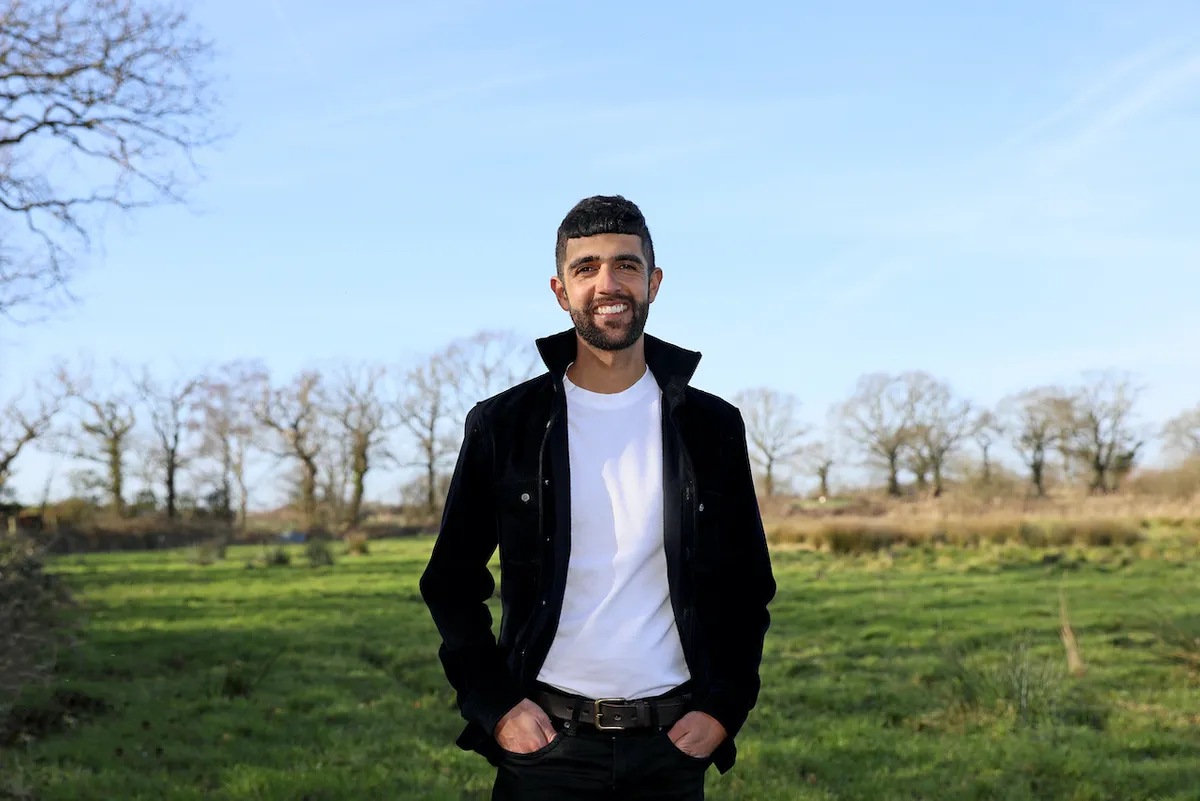
I got in touch with lots of nature reserves for my university placement year. Mostly National Trust ones because I already had positive experiences volunteering with them. Coastal sites were particularly attractive. And a well-timed BBC wildlife documentary about the north Norfolk coast reminded me of Geography field trips and an enjoyable family holiday we had in Norfolk.
There were two reasons why I returned to Blakeney two years after my placement. Firstly, because I loved it so much! I wanted to spend more time getting to know Blakeney Point and helping protect it. Secondly, although I did do a couple of seasonal jobs elsewhere – including Lindisfarne in Northumberland – to be honest, it’s a really competitive area of work. The volunteering I had done at Blakeney fortunately held me in good stead for future opportunities there.
When is your favourite time of year at Blakeney?
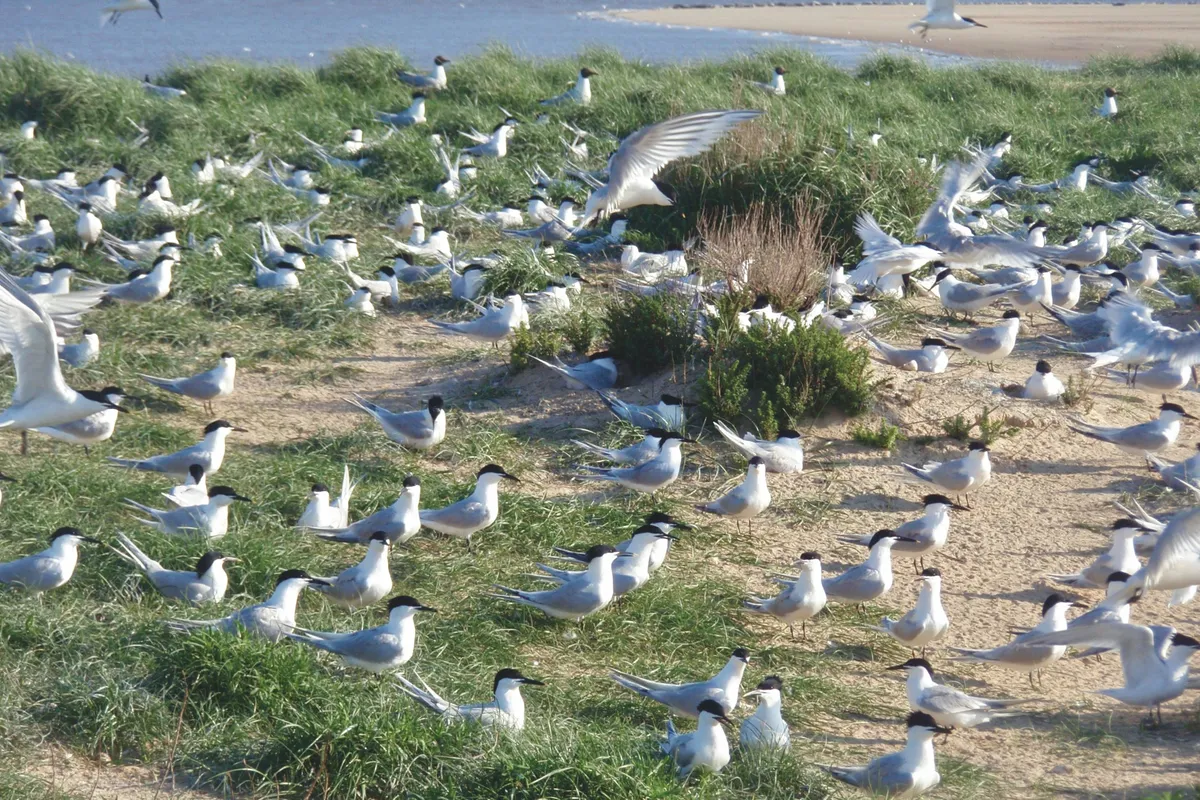
That’s really hard because the changing seasons are a big part of what make it so wonderful. An obvious highlight in the year is when the first sandwich terns return from Africa, heralding spring.
But autumn has to be my favourite time. After the busy bird-nesting season and summer tourism, there is time to pause, to breathe and take in the changing colours. I adore hearing brent geese burbling on the saltmarsh and skeins of pink-footed geese overhead, flying to roost against a fiery evening sky.
How did you cope with the isolation that comes from living in the Lifeboat House?
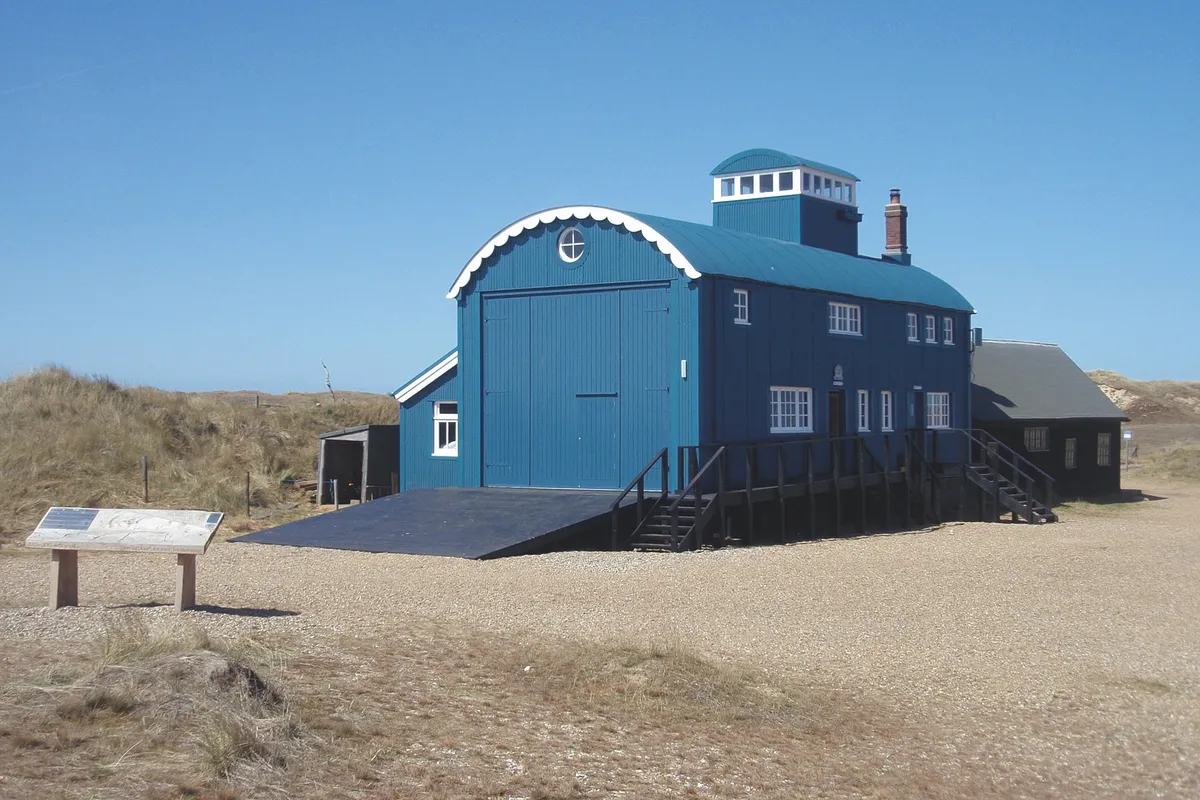
I like peace, quiet and space. So the isolation was often blissful thanks to the beautiful beach, wildlife and sunsets. But the key to not going crazy in a remote location is to maintain personal cleanliness and social skills! Except for the odd occasion, I would usually be accompanied by one to three assistant rangers plus intermittent volunteers, students and neighbouring hut-owners.
We would always cook proper meals and sometimes even go fishing on a quiet evening tide. Keeping in touch with neighbouring nature reserves and sharing our experiences on the National Trust blog kept us connected - the latter also nurtured my love for wildlife writing.
What’s your most memorable moment at Blakeney?
Perhaps surprisingly, it was a wet, grey Monday in September. The combination of heavy mist and south-westerly winds brought hundreds of migrating thrushes to ground. These blackbirds, song thrushes, redwings and ring ouzels had crossed the North Sea overnight. Exhausted, they were literally dropping from the sky all around us, sheltering in bushes, having finally reached dry land. There were dozens of robins and goldcrests too. This was my first experience of a famed “autumn fall” and it was truly magical.
Also, I'll never forget the year we didn't have running water for three whole months. There was a leak in the pipe that brings mains water under the harbour to the Point. The water had to be turned off at the mainland side, to prevent saltwater contamination. This left us unable to shower or use the washing machine. We flushed the toilets with buckets of rainwater and brought out bottles of drinking water each week. I know this is the norm for rangers on places such as the Farne Islands, but we weren't expecting to have this lifestyle forced on us! To make it worse, I was just entering a serious relationship! (Fortunately I was forgiven and we were married three years later.)
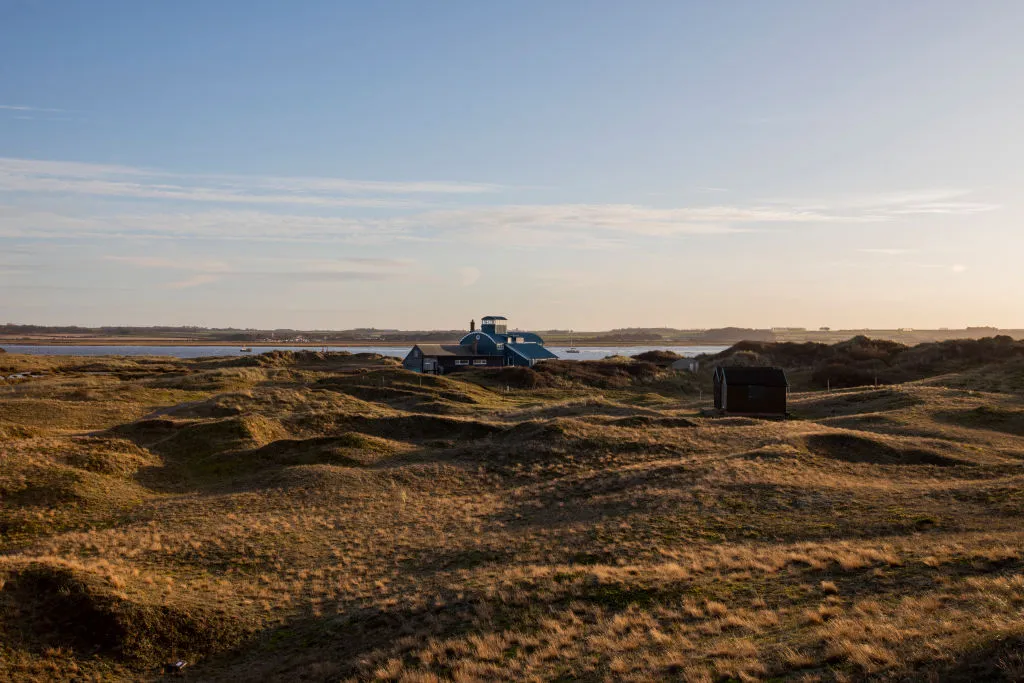
How do you think Blakeney and its wildlife will fare in the future?
There are so many threats and uncertainties. This year, it has been worrying to see the huge numbers of birds lost to avian influenza and the extreme weather that's indicative of climate change. The shingle spit itself is ever-changing, shaped by tides and extreme weather events. Shifting is what sand - and shingle - does. How wildlife will respond to these changes is another matter.
We have already seen so many species decline through loss of habitat and reduced availability of the species they feed on, such as insects and fish. We have to stay positive and maximise our efforts. I am confident that the National Trust will continue to do its best to protect Blakeney.
Fortunately, the breeding grey seal population looks very healthy at the moment. As for Blakeney’s birds, this depends on the success of international conservation efforts and getting as many people on board as possible.
Where do you work now?
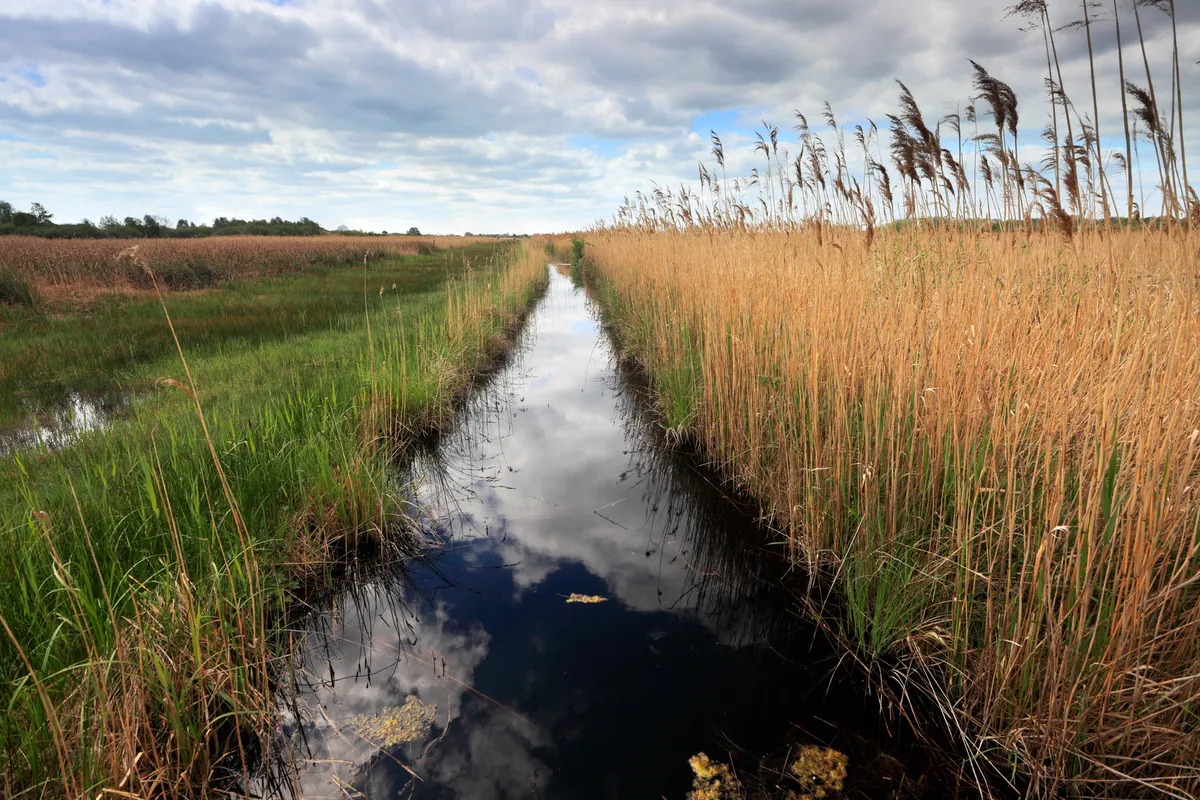
I now work at the National Trust’s Wicken Fen reserve in Cambridgeshire. It’s Britain’s oldest nature reserve, steeped in history while also very much looking to the future with ambitious habitat restoration and “re-wilding” projects. Having grown up in the Fens, I feel very at home living here.
My Blakeney days were such a fascinating and enjoyable time. Through the people I worked with and the experiences I had, Blakeney shaped me as a conservationist, naturalist and as a person. As life develops, change becomes necessary. There came a time when I was ready to move on and take the next step in my career, giving somebody else the opportunity, pleasure and honour of being Blakeney Point’s ranger.
What do you want readers to take away from your book?
I hope readers will take away an increased appreciation and understanding of our need to protect the natural world. Awareness is rising, but it’s a message that must keep on being shared. I want more and more people to understand the large number of threats that ground-nesting birds face and the simple things we can do to help. I would love it if readers felt inspired to get to know their local wildlife even better and help protect it.
About the book: The Unique Life of a Ranger by Ajay Tegala
The book begins with a bit of scene-setting and history. We learn how the Point was popular with Victorians and how the oystercatcher was lost as a breeding bird by 1892 thanks to the Victorians’ guns. Follow by how a visiting professor recovering from illness recognised the importance of its botanical species and how his influence meant that the Point was sold separately upon the estate owner’s death. This resulted in the Point’s purchase in August 1912 by the National Trust, which was less than 20 years old at that moment – the Trust’s first coastal nature reserve.
The book is then split into three parts: Tegala’s time as a voluntary warden during a placement year from his university degree, his first bird breeding season, and his experiences as the Point’s full-time ranger.
Tegala's writing invites us in to join him at his work: on duty at ‘the gap’ directing visitors to walk without disturbing the nesting terns, celebrating the Point’s 100th anniversary as a nature reserve and preparing for the threat of coastal flooding.
It’s a fascinating insight into the world of a Blakeney Point warden, and the highs and lows that come with such a job. I only hope Tegala writes another book for his current workplace at Wicken Fen!
The Unique Life of a Ranger by Ajay Tegala is published by The History Press.
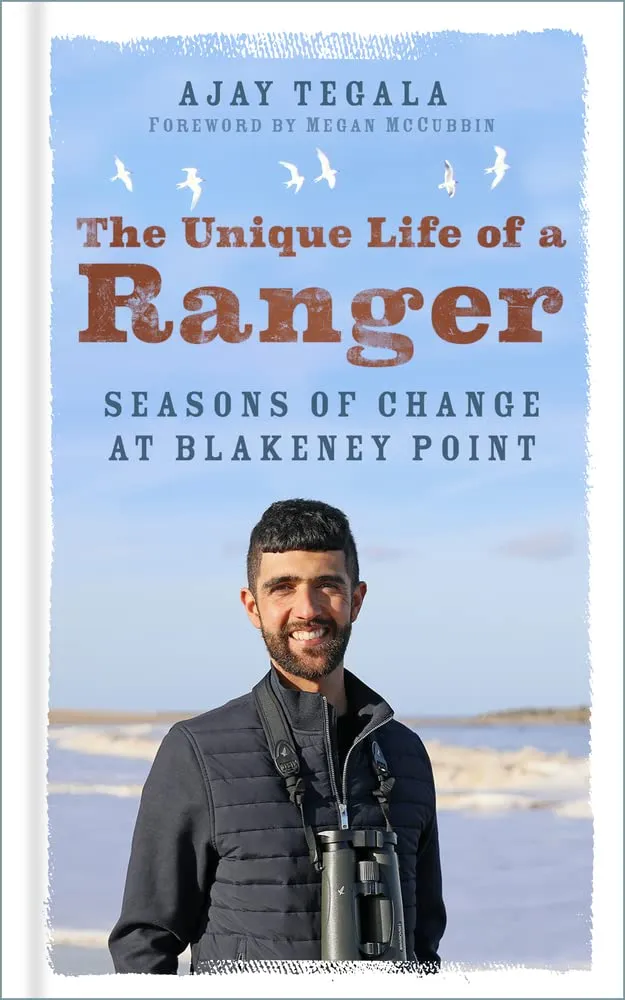
Main image: Ajay Tegala. © Dan Sunderland
Who is Ajay Tegala?
Ajay Tegala is a wildlife TV presenter and ranger at Wicken Fen National Nature Reserve. He has presented episodes of Springwatch and has appeared on Countryfile, Coast and Winterwatch. He also hosted the BBC wildlife documentary Inside the Bat Cave alongside Lucy Cooke. As well as working as a ranger at Blakeney Point, he has worked at Lindisfarne in Northumberland and Wicken Fen in Cambridgeshire. The Unique Life of a Ranger is his first book.
